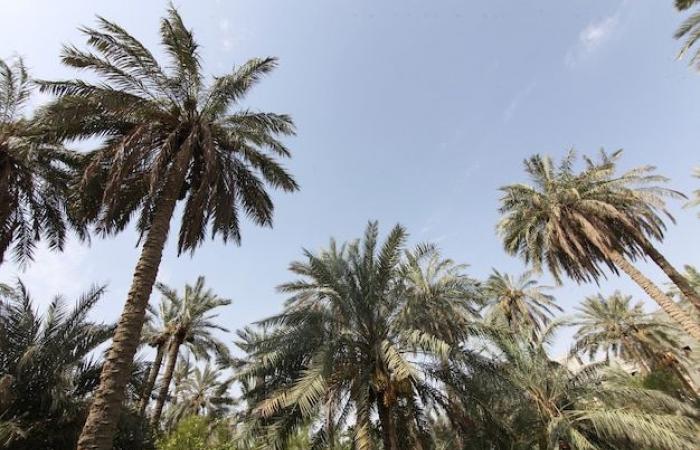The phenomenon of uprooting and transferring palm trees from the Zagora region to Moroccan cities for decorative purposes is resurfacing, despite laws prohibiting this practice. The Association of Friends of the Environment warns of the ecological, economic and social dangers of this worrying recovery, and calls for the strict application of laws to protect these palm groves, vital for the local identity and economy.
The destructive practice of uprooting palm trees, followed by their transfer to Moroccan cities to be used as decoration in the streets or in private properties, is making headlines again, particularly in the Zagora region. This resurfacing phenomenon raises major ecological, economic and social concerns. In an interview given to Morocco DiplomaticMr. Jamal Akechbab, president of the Association of Friends of the Environment of Zagora, denounced this worrying recovery, which endangers one of the most precious heritages of the region: the palm groves.
This phenomenon is not new. It dates back to the period between 2000 and 2006, when pressure groups exploited the precarious situation of farmers in the face of drought and growing poverty. Many people, in a situation of great distress, have been forced to sell their palm trees at ridiculous prices, often between 100 and 150 dirhams. These trees, symbols of the region’s identity and economy, are today extracted from palm groves to beautify the streets of Moroccan cities, or serve decorative purposes in villas and other private spaces.
Despite the existence of provincial laws and decrees aimed at protecting these palm trees, the practice persists. Mr. Akechbab recalls that a provincial decree of 2004 and the national law of June 1, 2007, relating to the sustainable development of palm groves, strictly prohibit this practice. These laws consider the uprooting of palm trees as a serious violation, punishable by law. However, despite these measures, the phenomenon continues, calling into question the effectiveness of their implementation and the effective protection of palm groves.
« The laws exist, but they are regularly circumvented, and today, the phenomenon is back, directly threatening our local ecosystems », explains Mr. Akechbab. For him, the situation is all the more worrying as the region’s palm groves are already weakened by environmental factors such as drought and overexploitation of groundwater.
When the palm trees fall, an entire ecosystem falters
The uprooting of palm trees not only has consequences on the environment, but also on the local economy and rural communities. Palm groves are not only an element of the landscape, but they play an essential role in the economic life of the region’s inhabitants. Palm cultivation is a source of income and work for many families, and its extinction endangers the very existence of these communities, which depend on this resource for their livelihood. “ Palm trees are at the heart of the economic and social life of our regions. Their disappearance will result in the loss of thousands of jobs and vital resources for residents », alerts the president of the association. It also highlights that palm trees are essential for the ecological balance of the region, playing a key role in regulating the local climate, protecting soil against erosion and conserving biodiversity.
Faced with this alarming situation, the Association of Friends of the Environment has taken measures to combat this practice. Requests have been made to local authorities, as well as to the general prosecutors of the courts of Bouleman and Zagora, to open an investigation and strictly apply the laws in force. The association insists on the need to strengthen controls and crack down on offenders in order to definitively stop this illegal practice.
« We have requested the opening of an investigation to identify those responsible for this ecological crime and to enforce the law. It is imperative that the authorities intervene to put an end to this harmful practice », says Mr. Akechbab. He adds that, without a rapid reaction, the region risks seeing its palm groves disappear and losing an irreplaceable natural heritage.
The appeal launched by Mr. Akechbab and his association aims to protect not only the environment, but also the rural communities that depend on this precious heritage. The protection of palm groves, according to him, is a question of survival for the inhabitants of the region, but also a fundamental issue for Morocco, in terms of preserving biodiversity and sustainable development. “We must do everything to preserve our oases and our palm groves. They are an ecological, economic and cultural treasure. Their destruction would have dramatic consequences for the entire country. », he concludes.






